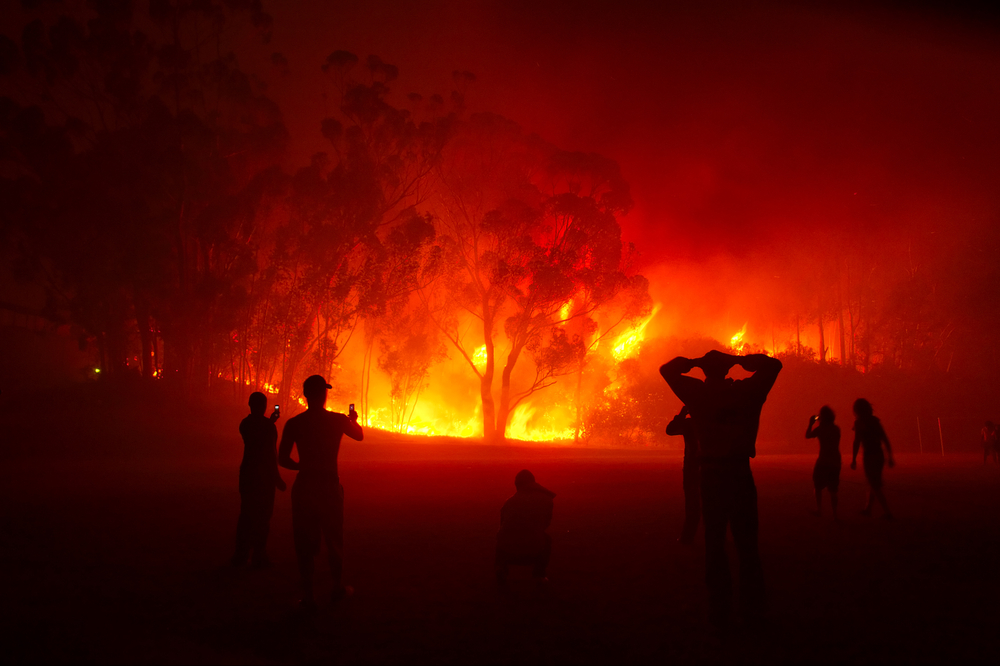
How to Stay Sane When Disaster Strikes
Global temperature is on the rise. The planet’s average surface temperature has gone up by 1.18 ⁰C since the 1880’s. The ocean is also getting warmer as ice sheets continue to shrink. According to the Intergovernmental Panel on Climate Change, more frequent wildfires, droughts and heat waves are expected in the future.
Climate change and mental health link
Studies show that climate change impacts mental health through different pathways. According to research published by Professor Helen Louise Berry from Macquarie University and colleagues, climate change may affect mental health directly by exposing people to traumatic events like wildfires.
Some of the direct effects of acute weather events on mental health include increased rates of acute anxiety disorders, chronic stress and even elevated rates of violence. Indirect effects of acute weather events on mental health mostly stem from damage to homes, community buildings and physical injury. Frequent exposure to heat waves is also associated with chronic mood disorders and even suicidal ideation.
Do you feel solastalgia?
The Australian environmental researcher and philosopher Glenn A. Albrecht coined the term solastalgia to describe the distress people feel when they lose their homes due to invasive changes like road building and deforestation. Nowadays, solastalgia is used to describe the emotional pain people feel in response to environmental degradation.
Solastalgia makes sense because natural disasters like wildfires, floods, and earthquakes disrupt our sense of safety and can lead to psychological trauma. In a study examining the prevalence of post-traumatic stress disorder (PTSD) after the August 1999 earthquake in Turkey, Dr. Ebru Salcıoğlu from King’s College London and colleagues found PTSD to be strongly related to fear during the earthquake.
When disaster strikes, it is completely normal to feel a wide range of emotions such as anxiety, fear, irritability, moodiness, numbness and guilt. You may find it hard to concentrate and feel slower than usual. It is also common to experience headaches, nausea and fatigue after experiencing a traumatic event.
In times like this, it is crucial to remind yourself that your reactions are normal and will likely ebb and flow in time. Mental health experts suggest that it is of utmost importance to prioritize self-care after a traumatic event. If you feel like talking about the event and your experiences, do not hesitate to reach out. Allow yourself to feel your feelings and remember that it will take time to feel like yourself again.
REFERENCES
- 1. Berry, L. H., Bowen, K., & Kjellstrom, T. (2010). Climate change and mental health: a causal pathways framework. International Journal of Public Health, 55, 123-132. DOI 10.1007/s00038-009-0112-0
- 2. Salcioglu, E., Basoglu, M. and Livanou, M. (2007), Post-traumatic stress disorder and comorbid depression among survivors of the 1999 earthquake in Turkey. Disasters, 31: 115-129. https://doi.org/10.1111/j.1467-7717.2007.01000.x
- 3. https://climate.nasa.gov/effects/
- 4. https://climate.nasa.gov/effects/ https://www.climatepsychologyalliance.org/handbook/484-what-is-solastalgia
- 5. https://www.apa.org/topics/disasters-response/recovering
- 6. https://ucc.nd.edu/self-help/disaster-trauma/taking-care-of-yourself/
